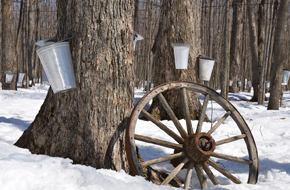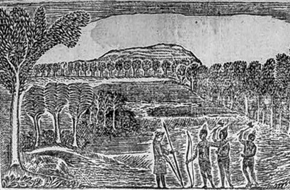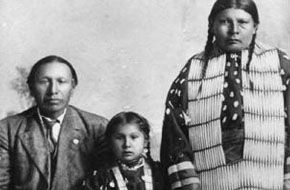
Book Group - Indigenous culture/tradition; Philosophy; Religion & spirituality
Damian facilitates discussions on books relating to Indigenous culture/tradition, philosophy, and religion spirituality. If you are interested in reading books on these topics, please reach out to Damian directly to confirm interest and availablity.
Contact
Damian Costello
Montpelier, VT 05602
dcostello@naiits.com
(802) 598-6777
Available Program Formats: In person or online
Book Groups offer an opportunity for participants to engage with diverse perspectives in the humanities through literature to build understanding, empathy, and to support a culture of reading in the Granite State. New Hampshire Humanities provides expert facilitators; host organizations must provide the books.

Maple, New Hampshire’s Medicine of Connection
Few things evoke the identity and values of New Hamphire more than maple syrup. It also bridges the many divisions facing our communites. In this presentation, Damian Costello explores how the practice of maple sugaring connects us to the land, our ancestors, and all that surrounds us. In conversation with Robin Wall Kimmerer’s bestselling Braiding Sweetgrass, he suggests that sugarmaking—which is informed by indigenous wisdom—is a communal medicine of connection that teaches mutual reciprocity with the land.

Murder in Plain Sight? An Abenaki/Settler Mystery on the New England Frontier
Calling all genealogists, local historians, and amateur detectives! This program will examine an unsolved story of murder from northern New England: Local history briefly records that in 1790, the original American settler to the Montpelier area, Jacob Fowler, killed an unnamed “Indian” in a dispute over a trapline. Together, participants will draw on historical documents, genealogical work, and the fiction of local historian D.P. Thompson to reconstruct the biographies of the two participants and explore this formative time in New England history.

That the People May Live - The Life and Legacy of Nicholas Black Elk, Holy Man of the Lakota
This lecture explores the life and legacy of Nicholas Black Elk (c.1866-1950), the Lakota holy man made famous by the book Black Elk Speaks, beginning with Black Elk's Great Vision and his struggle to discern his calling during the events of the Great Sioux War. During his long life, Black Elk lived out his vision in three overlapping roles: as a traditional healer, a Catholic teacher, and a revivalist of Indigenous traditions. In the midst of great tragedy, Black Elk wove these three strands into one beautiful life exemplifying survival, hope, and reconciliation. We will discuss the relevance of Black Elk's legacy for broader questions of Abenaki survival in Northern New England, hope in the face of global environmental problems, and reconciliation in the midst of growing political and religious sectarianism. This talk is based on extensive historical research, extended residency in Indian Country, and continuing conversation with Lakota elders.
The Stono Rebellion
The Stono Rebellion has been called the most important slave revolt in North American history. In this lecture, Damian Costello examines the events and the deep African roots of the 1739 uprising in South Carolina. Recent arrivals from the Kingdom of Kongo drew on drumming traditions, military organization, and Kongolese spirituality to communicate their message of freedom. The high point of the revolt was a ceremonial dance, the sangamento, which fused African precedents and enacted the rebels' call of liberty. Costello will also trace the sangamento tradition in the U.S. and throughout the Americas, and discuss how the Kongolese message of liberty can inform present-day efforts to overcome the lingering effects of our colonial inheritance.
"Damian Costello presented the story of the Stono Rebellion in an easy-to-follow way while explaining the complexities of the cultural, political, and religious factors at play. I think his own wish to learn more about the African people that did make it to Florida and supposedly, freedom, would add an interesting and needed footnote to the story of the Stono Rebellion. I appreciate how Damian Costello recognized that his interest in and telling of this partcular piece of history is related to his personal story and scholarly interests. It's the human part of the humanities which connects us."